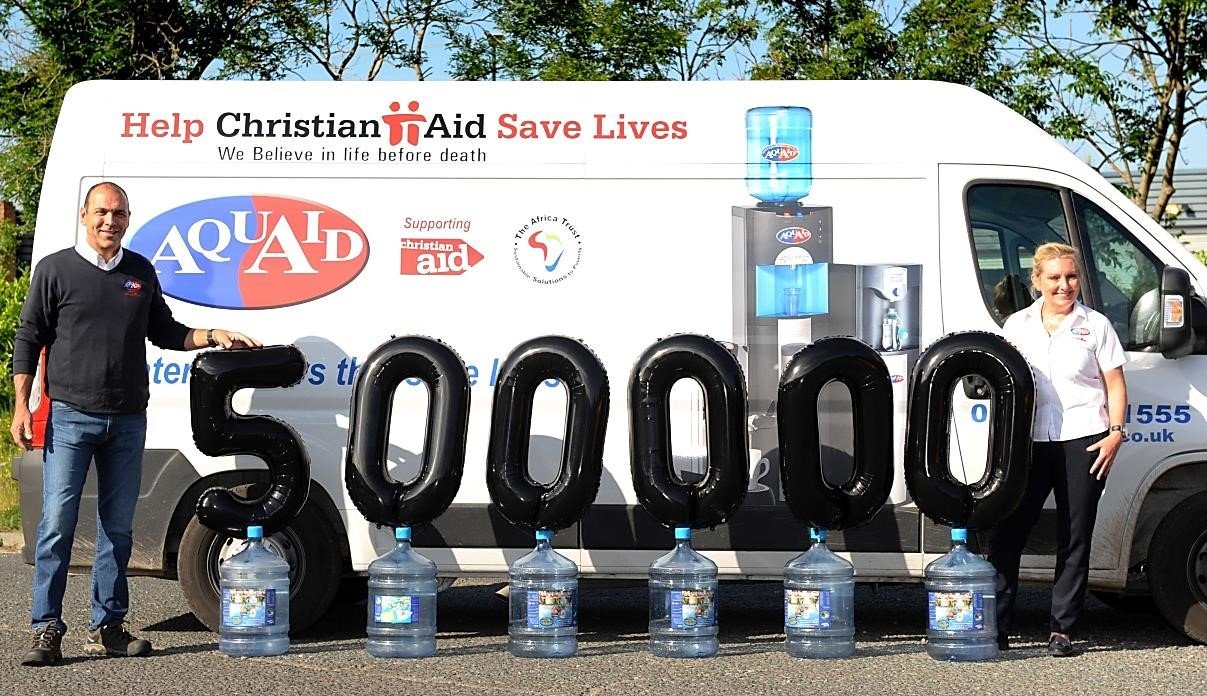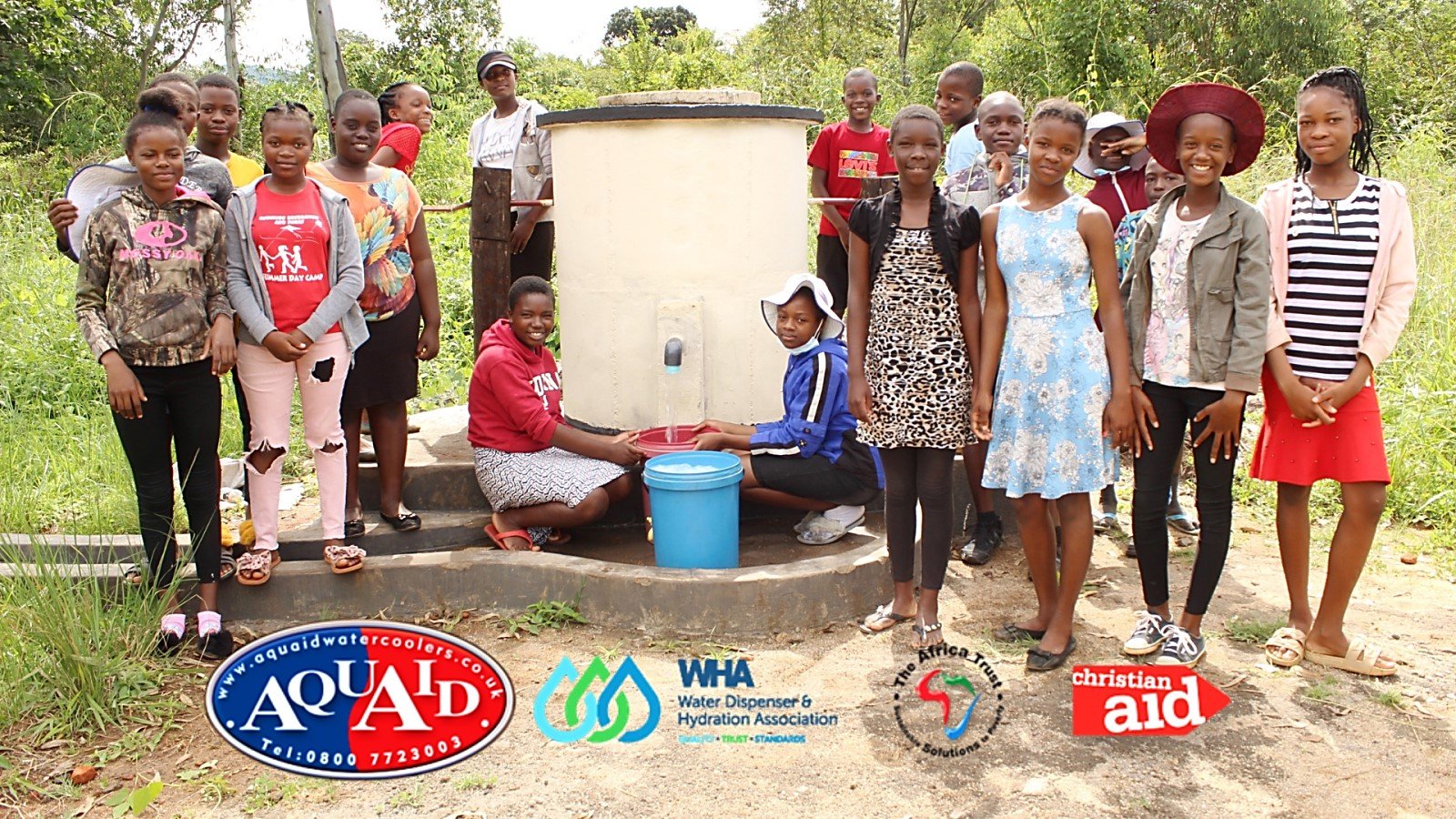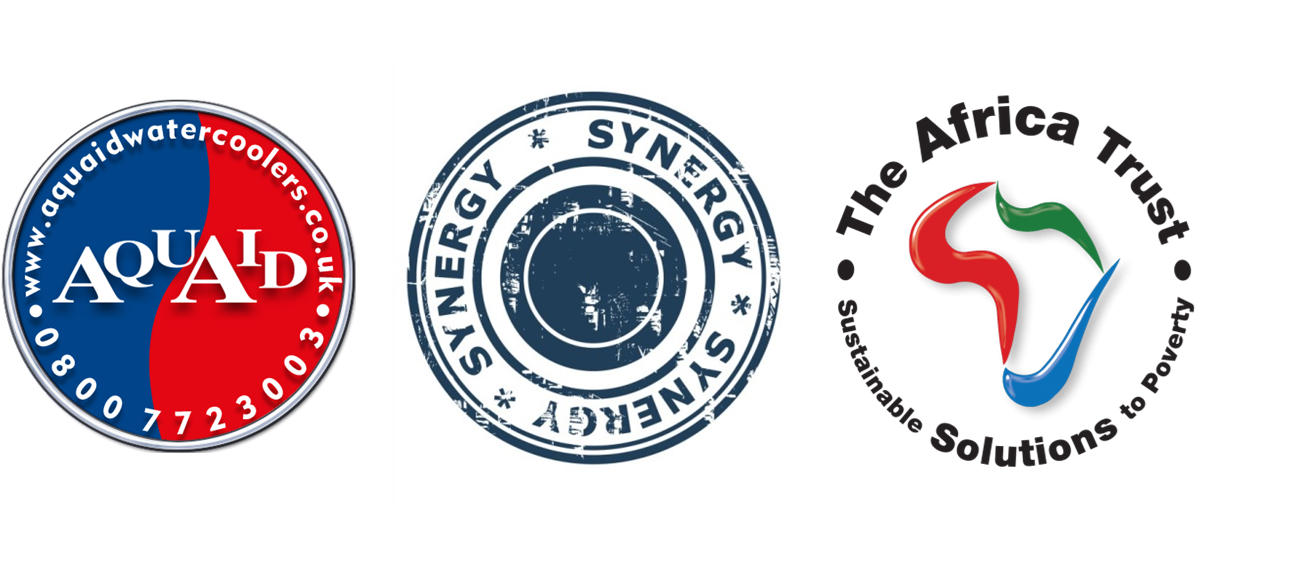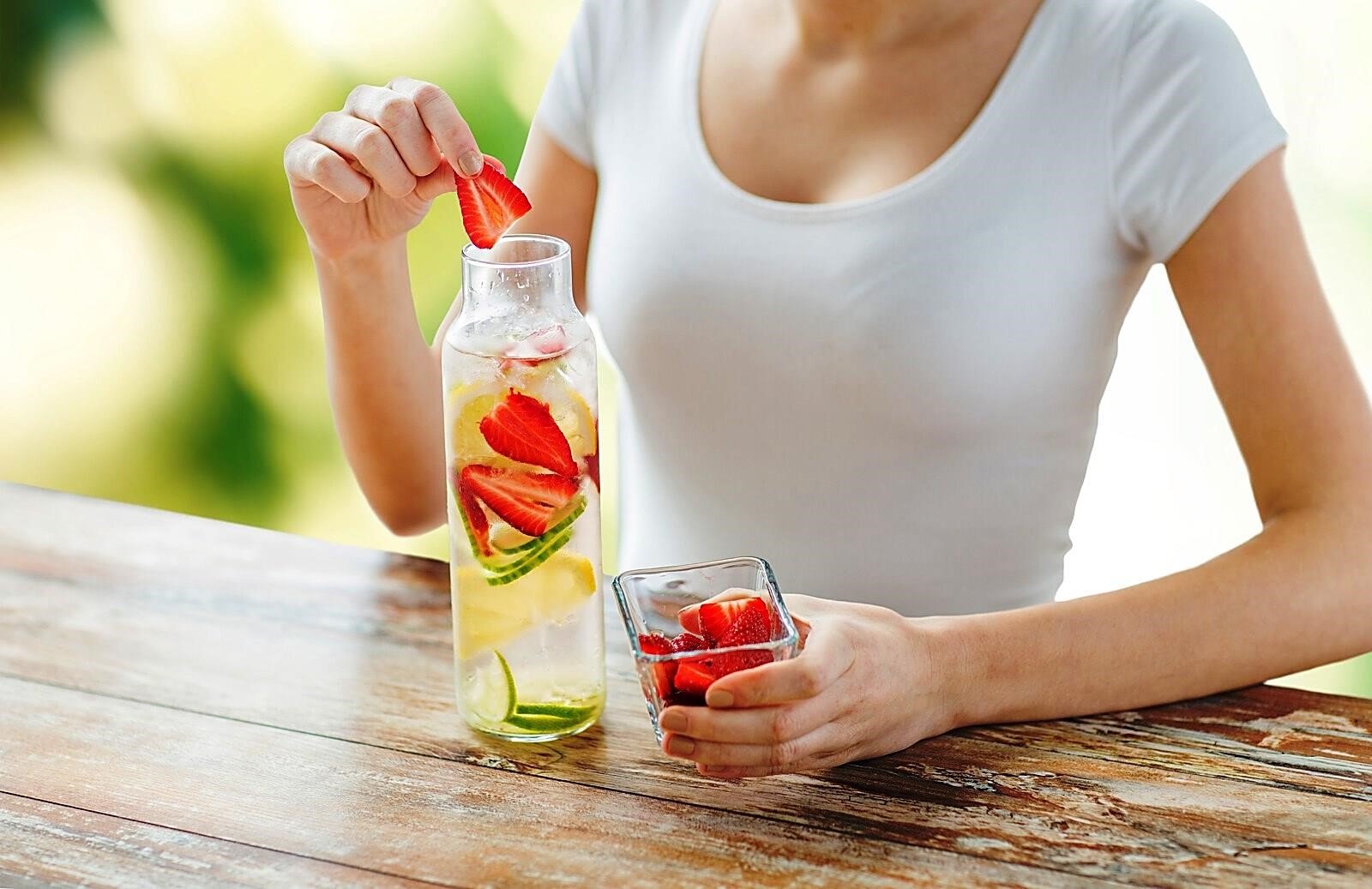
by Fern Shaw | Jul 15, 2022 | bottle fed water coolers, water cooler, Water Coolers
With temperatures set to soar, here at AquAid Water Coolers we have compiled a set of tips & tricks to help you keep cool and hydrated wherever you are:
At the office/in the workplace:
- Stay hydrated! Set an alarm clock on your pc, laptop or mobile to make sure that you visit the water cooler as often as needs be to replenish your drinking water.
- For spaces without aircon, see if you can create a cross breeze – open windows (but keep blinds partially closed) on both sides or open a door on the opposite side of the area.
- Drink cool (but not icy cold) liquids to help lower your body temperature. The water cooler station is perfect for this.
- Turn off electronics: If they’re not being used, unplug electronic devices to keep them from generating unnecessary heat.
At home:
- Fill up a hot water bottle with tap water, place in the freezer and you have a multi-purpose ice pack.
- Stay hydrated! Kids may not feel thirsty, but it’s essential to stay hydrated, so make sure young ones are getting lots of water. If you’re planning to leave the house, freeze your reusable water bottles and take them with you.
- Drink cool (but not icy cold) liquids to help lower your body temperature.
- Turn off electronics: If they’re not being used, unplug electronic devices to keep them from generating unnecessary heat.
- Don’t cook: Make yourself that Niçoise or Greek Salad or eat no need to heat food. Not only will this cool the body’s core, it will also keep cooking-related heat from filling up the house.
Out-and-about or indoors:
- Avoid the heat: stay out of the sun and if possible don’t go out between 10h00 and 16h00 (the hottest part of the day) if you’re vulnerable to the effects of heat.
- Have cool or at least room temperature baths or showers.
- Drink cold drinks regularly, such as water and fruit juice. Reduce high-caffeine drinks intake.
- Stay tuned to the weather forecast on the radio or TV, or at the Met Office website.
- Apply sunblock and wear loose, cool clothing and a hat if you go outdoors.
- Try wearing open shoes, sandals or flip-flops, however, if your skin is exposed, apply sunblock, Factor 30 at minimum.
- Check up on friends, relatives and neighbours who may be less able to look after themselves.
It’s also good to bear in mind that wherever you require a temporary or permanent hydration solution in the UK, AquAid have a wide range of water coolers tailor-made to meet your requirements. We even offer a next day water delivery service for our Bottle-Fed Water Coolers.
Contact us today.

by Fern Shaw | Jul 6, 2022 | aquaid tyne wear, Charity, Christian Aid, water cooler, Water Coolers
By Fern Shaw
AquAid Tyne & Wear, operating since 2002, this year celebrates twenty years in the provision of an extensive range of innovative and high-quality water coolers and dispensers, along with a total commitment to offering superior services to their 2,000 customers.
Reaching this 20-year anniversary holds more than one reason for celebration though – it also marks an incredible achievement with the branch donating just under £500,000 to the charities AquAid have supported since our inception in 1998.
In view of this remarkable achievement, we spoke to Gordon and Emir Dobson, who own and operate AquAid Tyne & Wear and asked for their comment.
“We are absolutely delighted that our donations have reached this level: these small contributions we know have made a big difference to those who need it.
Here’s to the next £500,000!” ~ Emir Dobson, Owner Director – AquAid Tyne & Wear
Extracts below are from a letter to Emir and Gordon written by Ian Thorpe, CEO of The Africa Trust, in recognition of this milestone.
“Many congratulations as you approach your twentieth anniversary for the Tyne and Wear franchise of AquAid. I was astonished to learn that your franchise alone has raised such an extraordinary amount of money for charity during the last two decades. With a current donation figure of £487,915 I have no doubt that during your anniversary year, you will achieve the tremendous milestone of over half a million pounds raised.
Thank you for the part you and your colleagues at AquAid Tyne &Wear are playing in lifting people out of poverty to live healthier and more productive lives.
You have also raised over £240k for Christian Aid, and during the last three years alone, 3,321 people in Malawi have received entrepreneurial training (at a cost of £12 each) and assistance to start small businesses.“ ~ Ian Thorpe, Chief Executive – The Africa Trust
Should you too like to play a part in this phenomenal, philanthropic movement simply by keeping yourself and your company, organisation or school hydrated, contact AquAid today.

by Fern Shaw | Jun 21, 2022 | water cooler, Water Coolers, water dispenser
As the temperatures soar throughout the UK, so does the demand for chilled, refreshing drinking water. At AquAid, where we have been in the business of providing a wide range of AquAid water coolers and water, both spring and bottled at source, for over 23 years, we...

by Fern Shaw | May 4, 2022 | mains fed water cooler, water cooler, Water Coolers
AquAid’s high-volume bottle fed and mains fed water coolers are the perfect solution where there is a high demand for a constant supply of fresh drinking water – wherever the location: football grounds; offices; worksites, warehouses; medical rooms; colleges; workshops; hotels; varsities or schools.
Every AquAid Large Capacity Mains Fed Water Dispenser is designed for ease of operation and to run efficiently.
For illustrative purposes, we are looking at the High Capacity Mains-Fed Hydrator Water Cooler, as it has an extra-large reservoir – a point-of-use water dispenser specially designed for serving a large number of people.
With a dispense gap of 230mm, easily accommodating varying sizes of water containers, the Hydrator can dispense up to 40ℓ of chilled water each hour, a sufficient volume to fill 120 x 330ml bottles.
The Hydrator’s sturdy design, developed for use in high usage areas, also boasts Hygiene Guard silver impregnated dispense tap reduces bacteria transfer and a flood guard anti-leak device for added security.
And there you have it, cool drinking water on tap. All the clever little (and large) mechanisms silently operating behind the scenes, all the while ensuring that you – thirsty Thelma or Thaddeus – remain properly hydrated and super productive throughout your working day or night.
Synergy
Every installation of an AquAid mainsfed water cooler and each bottle of water replenished brings with it donations that are used to build more water wells – referred to as Elephant Pumps – for communities in water scarce regions across sub-Saharan Africa.
So, the next time you press a button and fill your water bottle, mug or glass, think about the fact that not only are you keeping yourself healthy and hydrated but also with that simple push, you will have directly contributed towards:
Another draught of clean drinking water pumped into a bucket or onto a banana plantation that will pay for school fees and;
Another child now has access to safe drinking water, which will help them better concentrate in school and;
Another community with readily available potable, productive water for use every day, for all generations, for many decades.
Rather marvellous, don’t you think?

by Fern Shaw | Mar 30, 2022 | water cooler
Although it may be common knowledge that the adult human body is composed of up to 70 percent water, what may not be commonly known is that a huge amount of water is lost through metabolism, exercise, temperature regulation, waste transportation and digestion. Needless to say, it is essential for your health to stay hydrated.
Previously we’ve introduced ideas on how to encourage children to drink water, but what about ourselves? If you’re the kind of person who Pavlov Dog (excuse the very bad pun) salivates at liquid only is it’s fizzy, packed full of sugar or is a pretty colour, how do you ‘trick’ yourself into drinking the good ol’ H2O?
Add visual interest to your beverage. Forcing yourself to drink eight, tepid glasses of water out of a boring plastic cup will feel like drudge central. Instead, purchase a colourful sports bottle or a trendy travel mug. Carry your fashionable cup with you and take small sips throughout the day. Don’t try and drink it all at once.
Chill slices of orange and lemon or whole grapes, strawberries and raspberries. Or, be adventurous and mix sliced fruit or mint with slices of cucumber. Fill a clear glass part way full with chilled fruit and top up with water from your water dispenser or Instant Tap. Not only will your water look interesting, but also the subtle flavours of the fruit, aromatics or cucumber will make for a tasty hydration hack.
Eat plenty of fruits and vegetables. Surprisingly, about 20 percent of your daily water consumption comes from food. Some, such as cucumber, watermelon and tomato are nearly 90 percent water by weight. Cut up fruit and vegetable slices and carry them in a sealed container in your bag/backpack for a snack during the day.
Drink beverages other than water. Water is calorie free, but other drinks are good for you too. Depending on your dietary requirements, drinking milk or vegetable juice can be nutritious. Tea and coffee count toward your daily water consumption, but exercise moderation as caffeine makes the body excrete water. Too much caffeine may also make you jittery. Avoid sugary juices and soda. Limit alcohol consumption as alcohol is a diuretic and may dehydrate you.
Teach yourself good habits. There have been some rather unsettling reports about the lethargy produced from computer and office bound work. Combat these by leaving your workspace and perambulating over to the water cooler area. While it might not be appreciated if you pretend that you’re stalking prey at a watering hole in the Serengeti, a quick confab with your co-workers while you replenish your water bottle will give your brain and body a break.
Stake your water bottle claim. Fun it up in your workplace by ensuring the water glass or water bottle you replenish at the water cooler is distinctive and ‘you’ branded and unlikely to be claimed by a magpie type colleague. Who knows, you could start a trend!





